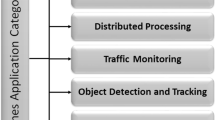Abstract
In a harsh and isolated environment with limited communication and human interaction, e.g., Antarctica, multiple unmanned vehicles or multiple drone systems can use fuel/battery faster than normal conditions. This has led to many drone failures. Preservation of fuel level becomes an essential factor for the management of drones while performing the required set of tasks within an acceptable time. The uncertainty of the environment further challenges the autonomous task allocation and path planning for drones. The existing literature algorithm was not tested or used in these severe conditions, which creates the major gaps in the autonomous drone’s management. This paper proposes a CBS-LSA algorithm, which is a combined algorithm of conflict-based search and linear sum assignment. This algorithm considers the drones’ fuel consumption before allocating the tasks uniformly and proportionately to all the available agents whenever the new sets of tasks were generated randomly. It can proportionately allocate tasks to drones, even if the number of drones is lesser than the number of tasks while maintaining the optimal task allocation process. Moreover, the algorithm optimizes the fuel consumption of the drones by allocating them to the nearest available agents and providing the best possible path for the agents that avoid static obstacles such as mountains and terrains.
Access this chapter
Tax calculation will be finalised at checkout
Purchases are for personal use only
Similar content being viewed by others
References
Brunet L, Choi H-L, How JP (2008) Consensus-based auction approaches for decentralized task assignment. AIAA guidance, navigation, and control conference (GNC). Honolulu, Hawaii
Burkard R, Dell’Amico M, Martello S (2012) Assignment Problems: Revised Reprint, 1st edn. SIAM, Philadelphia, USA
Choi HL, Brunet L, How JP (2009) Consensus-based decentralized auctions for robust task allocation. IEEE Trans Rob 25(1):912–926
Crouse DF (2016) On implementing 2D rectangular assignment algorithms. IEEE Trans Aerosp Electron Syst 52(4):1679–1696
Fu Z, Yu J, Xie G, Chen Y, Mao Y (2018) A heuristic evolutionary algorithm of UAV path planning. Wirel Commun Mob Comput 2018(1):1–11
Hönig W, Kiesel S, Tinka A, Durham J, Ayanian N (2018) Conflict-based search with optimal task assignment. In: Dastani M, Sukthankar G, André E, Koenig S (eds) Proceedings of the international joint conference on autonomous agents and multiagent systems. AAMAS, Stockholm, Sweden (2018)
Hunt S, Meng Q, Hinde C, Huang T (2014) A consensus-based grouping algorithm for multi-agent cooperative task allocation with complex requirements. Cogn Comput 6(3):338–350
Qadir Z, Ullah F, Munawar HS, Al-Turjman F (2021) Addressing disasters in smart cities through UAVs path planning and 5G communications: a systematic review. Comput Commun 168(1):114–135
Rachmawati D, Gustin L (2020) Analysis of Dijkstra’s algorithm and A* algorithm in shortest path problem. J Phys Conf Ser 1566:012061
Rossi F, Bandyopadhyay S, Wolf M, Pavone M (2018) Review of multi-agent algorithms for collective behavior: a structural taxonomy. IFAC-PapersOnLine 51(12):112–117
Serratosa F (2015) Computation of graph edit distance: reasoning about optimality and speed-up. Image Vis Comput 40(1):38–48
Serratosa F (2015) Speeding up fast bipartite graph matching through a new cost matrix. Int J Pat Recogn Artif Intell 29(2):1550010-1–1550010-17
Shah K, Ballard G, Schmidt A, Schwager M (2020) Multidrone aerial surveys of penguin colonies in Antarctica. Sci Robot 5(47):1–11
Sharon G, Stern R, Felner A, Sturtevant NR (2015) Conflict-based search for optimal multi-agent pathfinding. Artif Intell 219(40):40–66
Turner J, Meng Q, Schaefer G, Soltoggio A (2018) Fast consensus for fully distributed multi-agent task allocation. In Proceedings of the 33rd annual ACM symposium on applied computing, pp 832–839. ACM, France
Whitbrook A, Meng Q, Chung PWH (2018) Addressing robustness in time-critical, distributed, task allocation algorithms. Appl Intell 49(1):1–15. https://doi.org/10.1007/s10489-018-1169-3
Author information
Authors and Affiliations
Corresponding author
Editor information
Editors and Affiliations
Rights and permissions
Copyright information
© 2023 The Author(s), under exclusive license to Springer Nature Switzerland AG
About this paper
Cite this paper
Ganeshalingam, L., Maiti, A. (2023). Autonomous Drone Path Scheduling and Management Strategy with Multi-agent Decision Support and Coordination. In: Auer, M.E., El-Seoud, S.A., Karam, O.H. (eds) Artificial Intelligence and Online Engineering. REV 2022. Lecture Notes in Networks and Systems, vol 524. Springer, Cham. https://doi.org/10.1007/978-3-031-17091-1_58
Download citation
DOI: https://doi.org/10.1007/978-3-031-17091-1_58
Published:
Publisher Name: Springer, Cham
Print ISBN: 978-3-031-17090-4
Online ISBN: 978-3-031-17091-1
eBook Packages: Intelligent Technologies and RoboticsIntelligent Technologies and Robotics (R0)




